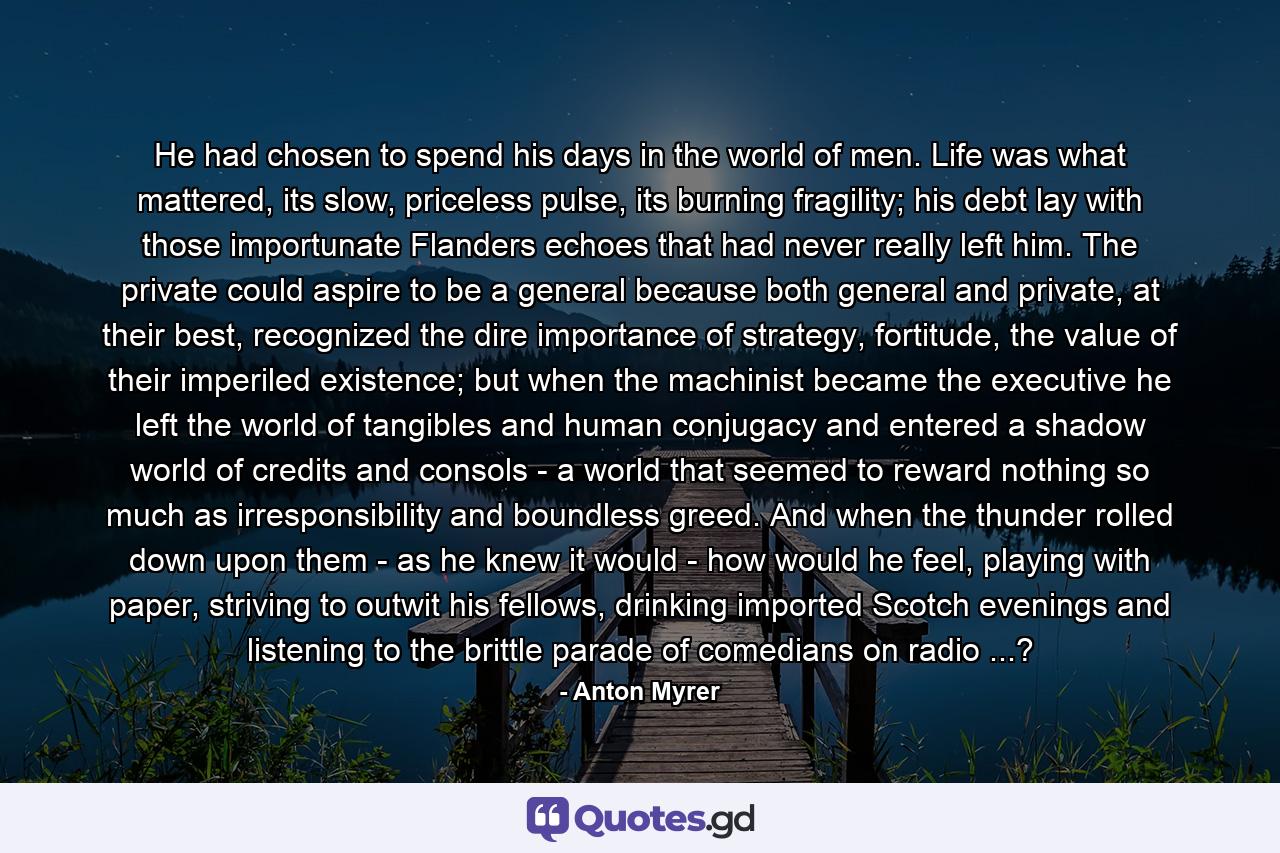He had chosen to spend his days in the world of men. Life was what mattered, its slow, priceless pulse, its burning fragility; his debt lay with those importunate Flanders echoes that had never really left him. The private could aspire to be a general because both general and private, at their best, recognized the dire importance of strategy, fortitude, the value of their imperiled existence; but when the machinist became the executive he left the world of tangibles and human conjugacy and entered a shadow world of credits and consols – a world that seemed to reward nothing so much as irresponsibility and boundless greed. And when the thunder rolled down upon them – as he knew it would – how would he feel, playing with paper, striving to outwit his fellows, drinking imported Scotch evenings and listening to the brittle parade of comedians on radio …?
